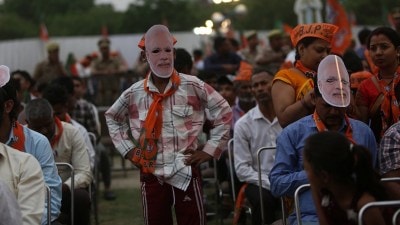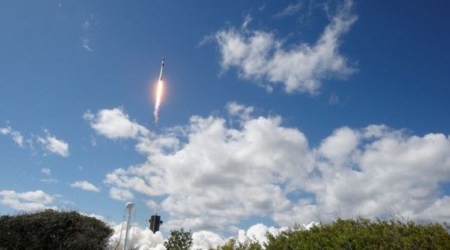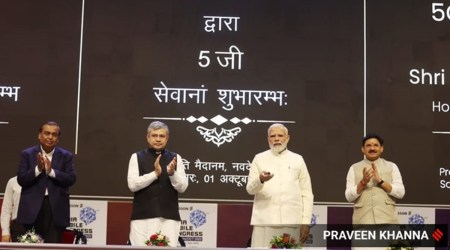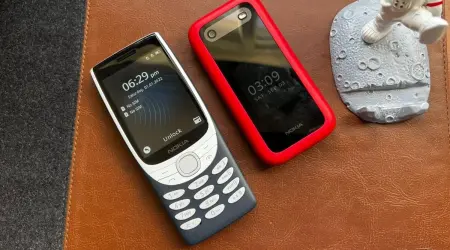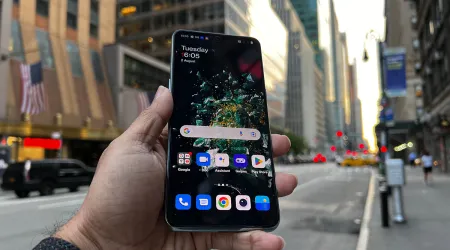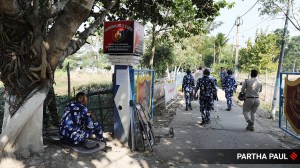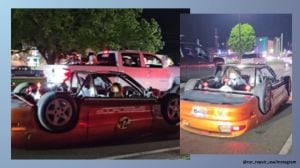- India
- International
The Bridge Maker
Winner of the 2018 Skoll Award for Social Entrepreneurship, Harish Hande on finding knowledge partners in rural India.
 A home lighting project in Karnataka. (Express photo)
A home lighting project in Karnataka. (Express photo)
Sumangala Patil sits on the floor making rotis on her gas stove. She used to make about 150-200 rotis a day until she was introduced to the solar-powered roti-making machine, invented by SELCO Foundation. It raised her capacity to 500-600 rotis a day. But technology is not the only thing that worked for the entrepreneur. That she could reach the right market and get the financial backing made a difference to Patil’s business. She’s one of the many whose lives SELCO (Solar Electric Light Company) has impacted.
Founder Harish Hande, 2018 winner of the Skoll Award for Social Entrepreneurship, has been in the business of making clean energy accessible to the “under served” for the last 23 years. He believes that the poor are poor because they lack access to energy. Be it reaching electricity to a hospital or providing light at home for a child to study after sunset or having an energy-efficient house in an urban slum, Hande and his team have been democratising services at the grassroot level. In his acceptance speech at the Awards ceremony in the UK recently, Hande said that nearly 3000 million are off the grid in India.
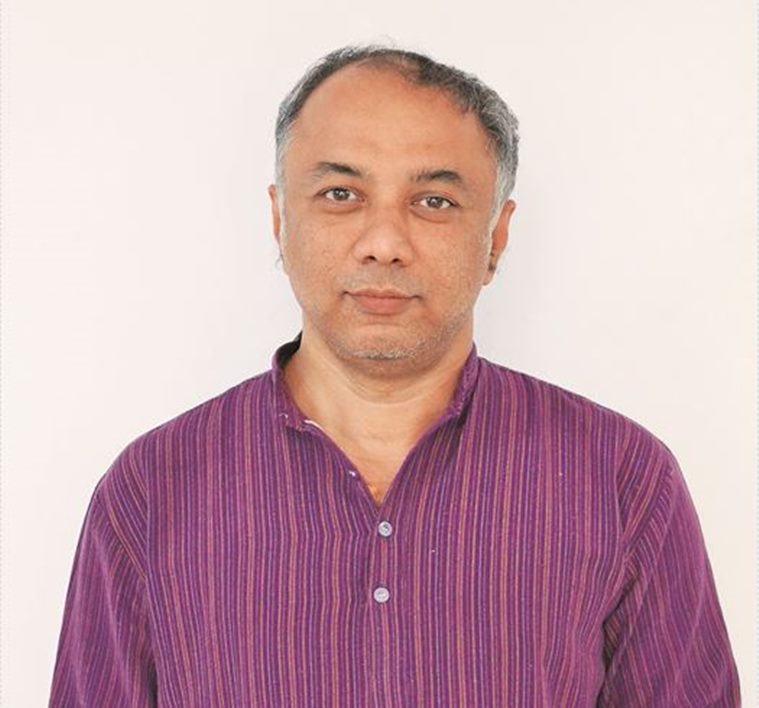 Founder Harish Hande, 2018 winner of the Skoll Award for Social Entrepreneurship, has been in the business of making clean energy accessible to the “under served” for the last 23 years. (Express photo)
Founder Harish Hande, 2018 winner of the Skoll Award for Social Entrepreneurship, has been in the business of making clean energy accessible to the “under served” for the last 23 years. (Express photo)
The IIT-Kharagpur alumnus visited the Dominican Republic in 1991 as part of his PhD thesis at the University of Massachusetts. With his mentor and professor Richard Hansen, he saw how sustainable energy solutions could work for poor households. It led him to look at the socio-economics of alternative energy in India too. Inspired by a 65-year-old lady in a village in Karnataka who had never seen a light bulb, Hande began evangelising about solar lighting. He would go door to door in the state, customising lights, providing avenues for finances and creating a strong service network. SELCO has been working in Hande’s home state, Karnataka, his birth place, Odisha, and in select areas of Kerala and Gujarat.
“We come from privileged backgrounds and because we speak English, a bank or an donor will still risk giving us money, compared to someone who speaks only in Oriya or Kannada. There is a need to change that approach, there has to be a failure capital for vernacular R&D. We haven’t created platforms that allow for such risks,” says the 51-year-old.
The Magsaysay awardee maps an MIT graduate and a Class X pass on the same scale when he’s recruiting people at SELCO. “Often, university graduates believe they have solutions to fit a problem. We tell them you have to see the missing pieces in its socio-economic-cultural context. I was recently at an IIT and had asked them to make a butter churner more effective. They came back saying that students were not interested in social issues, I had to tell them, it’s not a social issue, it’s an engineering problem,” says Hande, adding, “Poverty and environmental issues can’t be a single nation problem.”

One of the ideas for solar lighting was inspired by the mid-day meal model, says Hande. “In our schools in Karnataka and Odisha, we’ve installed solar panels. But in these homes, we have only given the light bulbs and small batteries. To charge the batteries, the child is compelled to go to school. So parents send their children to school so that they have electricity for the night,” he says.
Talking about their current work in the Northeast, Hande says, “Rather than Made in India, we should have ‘Thought in India’. We need to invest in innovations in rural India. In the Northeast, we find these ecosystems lacking. We are taking good guys, who are talented and capable of doing so much more, and turning them into chefs and watchmen in the city. Instead it can be a R&D hub for India.”
SELCO’s impact has also reached places in Africa, where using a database of problems they have scaled up solutions in different ways. On their website, they have ambitiously said, that in the next five years, nearly 10 million people will have the potential to lift themselves out of poverty. If their two-decade track record is anything to go by, this is a possibility.
More Tech
Apr 25: Latest News
- 01
- 02
- 03
- 04
- 05











